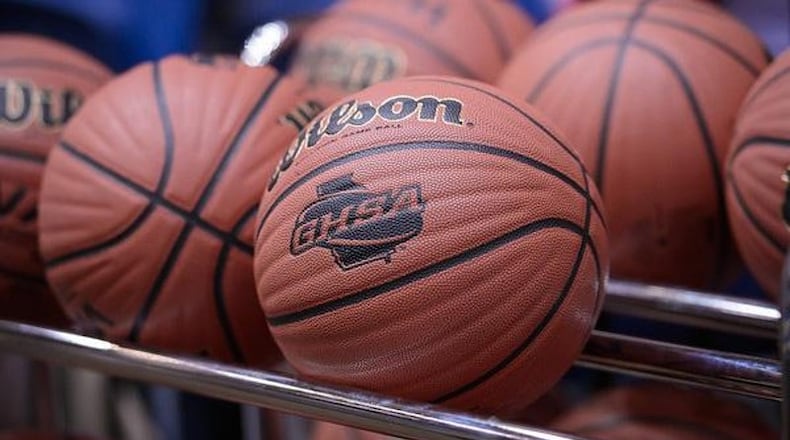The Georgia High School Association is easing restrictions on summer conditioning starting Monday by allowing sports teams to use balls and sport-specific equipment and by increasing to 50 from 25 the number of students and coaches allowed in workout groups.
That means quarterbacks can throw passes to receivers, volleyball players can practice serves and digs and basketball players can work on shooting and passing. It's doesn't mean scrimmaging, though, and athletes must continue to maintain social distancing and follow other safety mandates the GHSA established last month.
“Just a couple of things have changed,’’ GHSA executive director Robin Hines said Thursday. “Everything else remains in place. We still have social distancing, so wide receivers can’t work against defensive backs. But pitchers and quarterbacks can throw. We still want to maintain a focus on conditioning.”
The GHSA lifted its ban on sports activities last month by allowing schools to begin conditioning June 8 with groups limited to 20 people, including coaches. The group limit was increased to 25 this week.
Most metro Atlanta schools didn’t begin workouts until this week, giving themselves more time to prepare for the COVID-19 safety guidelines. Some Georgia schools, including those in DeKalb County, won’t start until June 22 or later, meaning they can begin with sport-specific equipment and larger group sizes right away.
Hines meets weekly with his Sports Medicine Advisory Committee to review recent data on the pandemic and guidance by the CDC and state officials. He said the committee condoned moving ahead despite an increase in the number of positive COVID-19 cases in Georgia over the past month.
“There’s been a slight uptick in cases in Georgia,” Hines said. “It’s not like some of the places around us (with higher increases). We try to keep things in perspective. The amount of testing is going up as well, so you’re going to have more positives. What our doctors feel is that kids are not at high risk, and some other groups such as the elderly should still be more cautious. We feel confident in what our guidance is and hope we continue to move in the right direction.”
July could mean the next phase of reopening, Hines said. After next week comes the GHSA’s annual dead week June 28-July 4, when no sports activities are allowed.
“We hope (by July) to be more closely aligned with where we would ordinarily be,” Hines said. “The next step obviously would be where in football the quarterback can throw against the secondary or in basketball it’s three on three or five on five, in other words, where they’re actually competing. But we can’t made those decisions yet because we don’t have the data. We’ll wait and see.”
The summer workouts have always been voluntary. Mandatory practices cannot begin until July 27 in football and Aug. 1 in the other fall sports, which ware fast-pitch softball, volleyball, cross country and cheerleading.
About the Author
The Latest
Featured

